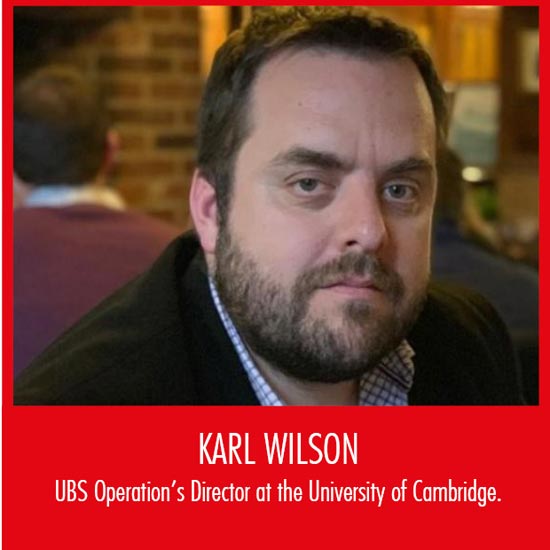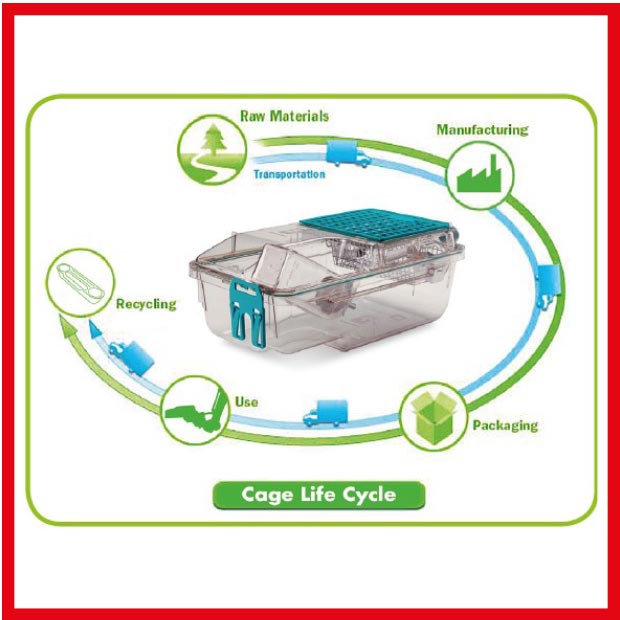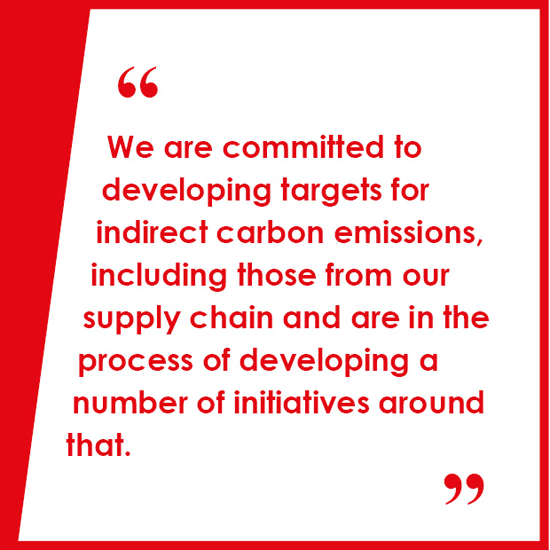
The current version of the Tecniplast website doesn't match your region. Please visit your local website to find information and offerings specific to your country.

The current version of the Tecniplast website doesn't match your region. Please visit your local website to find information and offerings specific to your country.

 UBS Operation’s Director at the University of Cambridge. His attitude towards sustainability topics makes his work consistent with Tecniplast’s mission.
UBS Operation’s Director at the University of Cambridge. His attitude towards sustainability topics makes his work consistent with Tecniplast’s mission.
You have recently participated at an interesting workshop on Environmental Sustainability in the UK. Can you summarize the most important conclusions and where you see this important topic in short terms related to the LAF products adoption?
Undeniably the last few years has seen a marked increase in awareness of environmental factors. Whilst a few years ago the focus was predominantly around what we could directly do to save energy and help sustain the environment, such as making sure our buildings were energy efficient, this is now expanding to look at areas such as our supply chains. We’re already within Cambridge holding training sessions and workshops to help us implement and reinforce this within our procurement practices.
Do you think that the Environmental Sustainability and the efforts done by some suppliers as Tecniplast, will increase importance in the future in the mind of customers and in their product evaluation?
Yes, absolutely. We are already seeing it to various levels and that will increase. The University of Cambridge is the 1st University in the world to commit to a science-based target of zero carbon emissions from energy use by 2048.
As part of that initiative we are committed to developing targets for indirect carbon emissions, including those from our supply chain and are in the process of developing a number of initiatives around that. As such the things we take into consideration and afford weighting to when considering scoring tenders and considering our partners will no doubt move accordingly.
 Do you think that Companies such a Tecniplast, with strong commitment to the Environment, will gain a competitive advantage from users in the next future? Why?
Do you think that Companies such a Tecniplast, with strong commitment to the Environment, will gain a competitive advantage from users in the next future? Why?
As part of our commitment, one of the easy ways of enforcing this is to make it a larger part of tender evaluations and contract discussions. At the moment, for us, environmental considerations are usually part of the quality assessment, but I can envision this being drawn out in the future into a separate area of focus with a larger weighting. This means those that have made a commitment and are able to demonstrate it will gain an advantage.
Tecniplast has introduced important marketing tools to support customer needs in evaluating the green sensibility of an organization; some examples: Iso Certifications, Environmental Reports, Green policies, Specific programs such as the old plastic cages recycling program. Which one do you like more and why? Which one do you think will support customers mostly?
That’s difficult to answer as they all serve a purpose within the supply chain and product life cycle. What we as customers need to do, is make sure we understand the information and more importantly the question we are asking so that we can properly evaluate what the impact of our procurement decisions are. The ISO certificates and standards should help with that but equally the front-line initiatives like the recycling programs help on a far more practical level.
 The green topic sometimes produces misleading communication. How do you plan to manage it
The green topic sometimes produces misleading communication. How do you plan to manage it
We need to be clear on what it is we are looking for and what our expectations are.
There are global initiatives that are giving us new ways to measure and implement targets and hopefully that becomes more transparent and easier to do. Along with that will come standardised ways to quantify answers for comparisons rather than the mostly qualitative methods currently used.
This will further help us measure the effectiveness of what suppliers do and commit to.
Today the scores for Environmental Sustainability is very marginal in the product evaluation. Do you think that it will become one of the most important factors in the evaluation? If yes, when and why?
I’m sure it will become an important factor in tender evaluation. As for the when, certainly soon and rightfully so, but I feel we need to be careful. If we are making it more important, as those evaluating the responses, we have to ensure we can get responses back that are measurable and proven. If not, we run the risk losing the impact it can have and making the wrong decisions.
LEOPOLDO ZAUNER – MARKETING DIRECTOR